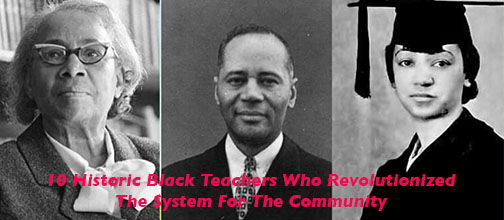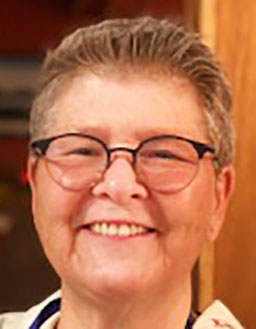Know Your Contract
Part-time faculty have rights to stability in assignments
by Marianne Kaletzky, AFT 1493 Executive Secretary
One of the most difficult aspects of being an adjunct at most institutions is not knowing whether you’ll have an assignment in the coming semester. Thankfully, our AFT contract offers a number of appointment stability protections to existing adjuncts (also called part-timers). While we cannot give a 100% assurance that any adjunct will have a particular assignment in the coming semester, our contractual protections do help ensure that long-time adjuncts are able to maintain their load where possible, and that decisions about assignments are made according to a set of defined criteria, with deans obligated to disclose the reasons for their decisions upon request.
You have additional rights if you are an adjunct who has received two consecutive satisfactory evaluations or has been given an assignment for six semesters (not necessarily consecutive) with no negative evaluations. Please note that the provisions below do not apply to summer assignments.
Adjuncts’ assignment rights
All adjuncts have (applicable contract articles for each right in parentheses):
- The right to be placed on the seniority list of every department in which they work from their first semester working there. (19.1)
- The right to request an assignment and load for a given semester before the schedule for that semester is finalized. Deans must distribute a form for adjuncts to make their requests. (19.2.7)
- The right to be notified of their proposed assignment and load at least 15 working days before the beginning of that assignment, when this timeline is feasible. (19.2.7)
- If their assignment and load request is denied, the right to a written explanation of the reasons for the denial, if they ask for such an explanation. Adjuncts may submit a request for such a written explanation to their dean. (19.2.7)
- Similarly, if an administrator decides an adjunct’s assignment must be reduced, the right to have the reasons for the reduction discussed with them by the appropriate administrator. Adjuncts in this situation also have the right to a written explanation of the reasons for the reduction, if they request such an explanation. (19.2.5)
- With some exceptions (19.1 and 19.2), the right to receive the same load for any semester that they had in the previous semester before a less senior adjunct gets an assignment. Let’s say that Adjunct A has a .6 load this semester and Adjunct B has a .2 load this semester. Adjunct A’s seniority date is January 18, 2015, while Adjunct B’s seniority date is August 19, 2019. If there are not enough available assignments for both to get the same load next semester that they have this semester, the contract specifies that Adjunct A should get their full .6 load before Adjunct B is assigned any load at all. (19.2.6)
- If seniority is not followed, the right to request and be provided a written explanation of why the dean did not follow seniority. The contract specifies that “In any instance in which seniority is not followed, the documented reason shall be provided to the faculty member, and AFT, at least fifteen (15) working days prior to the first day of assignment, if the faculty member requests such documentation within ten (10) working days of receipt of the assignment” (19.2.4.1)
- With the same exceptions as above, the right for unstaffed assignments to be offered to adjuncts in order of their seniority.
Special provisions for adjuncts who have received two consecutive satisfactory evaluations or has been given an assignment for six semesters (not necessarily consecutive) with no negative evaluations:
- When feasible, the right to have the same or similar faculty load as in the previous term. The division must make reasonable efforts to give part-timers who meet the above criteria the same load for one term that they had in the previous term. (19.2.4)
You have to ask
As you’ll see, in many cases deans are required to provide explanations in writing, but only when they are requested. Remember that you can always ask for a copy of your department’s seniority list, and, as outlined above, you can ask for a written explanation of the reason your assignment and/or load request was denied. These documents can inform your potential course of action when you are not satisfied with your proposed assignment.
Contact your AFT grievance chair for support
AFT can support you as you advocate for your rights. If you are an adjunct who thinks that a dean may not have followed the contract in giving you an assignment, or you have questions about how the assignment process should work, please contact your campus grievance chair. Remember that time is of the essence in many cases: the sooner you reach out to your grievance chair after a potential contract violation, the greater the odds of finding a remedy that improves your situation in a meaningful way.
- Cañada: Doniella Maher (maher@aft1493.org)
- CSM: Teeka James (james@aft1493.org)
- Skyline: Bianca Rowden-Quince (rowden-quince@aft1493.org)






 Skyline College has been my ‘home’ since 1990. I knew I had hit the motherlode; I had found my dream job. I still got butterflies walking across the campus after all those years, especially at the beginning of every new semester. I couldn’t imagine being paid to do something I love. I couldn’t imagine finding more engaging, intelligent, and passionate colleagues. Teaching is a noble profession, and I was thrilled I was part of it.
Skyline College has been my ‘home’ since 1990. I knew I had hit the motherlode; I had found my dream job. I still got butterflies walking across the campus after all those years, especially at the beginning of every new semester. I couldn’t imagine being paid to do something I love. I couldn’t imagine finding more engaging, intelligent, and passionate colleagues. Teaching is a noble profession, and I was thrilled I was part of it.